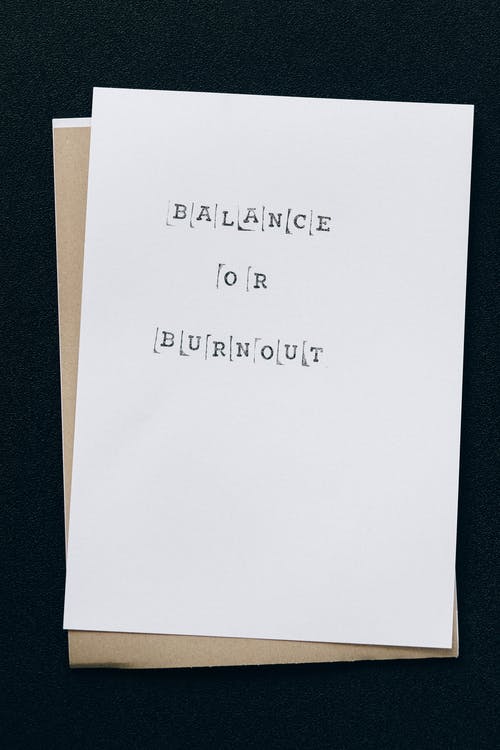In the fast-paced modern world we live in, there’s a lot of emphasis on high productivity, quick work, and lofty aims. We have all these lists of successful people who achieved something great at a very young age, and we look up to such individuals.
There’s nothing too wrong with wanting to do your very best at a job that you love. However, even the most passionate of workers face burnout at times. Below is a brief summation of how burnout usually comes about and what it’s like:
The Stages Leading to Burnout
Psychologist has managed to narrow down the stages of a burnout. These might not be the same or even in the same order for everyone, but knowing about them can help us flag the symptoms for impending burnout and even depression at times:
- Excessive ambition and drive: this is common when a person is just starting a novel task or a new job. They tend to push themselves in order to impress their superiors and sometimes because they genuinely enjoy the work.
- Pushing yourself: With more ambition comes a desire to work harder all the time.
- Neglecting needs: A person starts to prioritize work over their own needs. Exercise, eating well, socializing, and sleep is sacrificed for the sake of doing more work or a better job.
- Displacing the blame: Instead of realizing that you’ve put too much on your plate, you might blame your colleagues, family, boss, or the demands of the job for the adverse effects. For instance, a job might not be too difficult to complete but you obsess over every little detail. This causes you to fall behind, miss deadlines, and get reprimands from clients or superiors.
- No slots for non-work activities: You start to stay alone more often, either concentrating on work or preparing for it. You turn down social invitations such as parties, get together, or anything else that isn’t related to work.
- Denial: You’re not aware of how you’re behaving with people around you. Instead of taking responsibility for behaviors like impatience or anger, you blame other people and view them as lazy and incompetent.
- Withdrawal: the isolation causes you to withdraw from all coals cuticles. Even if you do accept any invitations to get together, attending such events seems like a chore.
- Depersonalization: You start to feel detached from life in general and feel out of control.
- Anxiety or emptiness: You might feel unfulfilled all the time, or extremely anxious for no reason. Some people seek out thrills in order to cope with such emotions; this could be alcohol abuse, drug abuse, comfort eating, gambling, etc.
- Depression or Collapse: When depression sets in, you might feel like life has lost meaning and that’s everything hopeless. If not that, you may face a physical or mental collapse. This might make it necessary to get immediate medical attention or therapy.
Ways to Avoid Work Burnout
From the stage above, it’s evident that work burnout is something we need to combat. Here are a few ways to stave off such unwanted situations:
1. Completely Unplug Once in a While
The idea of working vacations is a nice one in theory, but they don’t really allow one to fully wind down and relax. If you’ve been working hard for a long time, it’s probably best to take a vacation where you can fully unplug.
Set up an automatic out-of-office email and message, inform your clients, and take a well-deserved break. There’s no need to respond to emails during that time; at the very last, you shouldn’t feel under pressure to do so. While some might like to take their loved ones along, decide whether it would be best to take along your children, if any. While spending time with the whole family might be a great way for some to relax and have fun, others might find childcare too stressful for a proper vacation.
2. Balancing and Harmonizing
We’ve all read a lot about work-life balance, but it’s also equally important to harmonize your work with your life. Value passion in your work, stay connected to the people you work with, and truly care about what you do. For some hard workers, the true reward might lie in finding that they’re making a positive difference in people’s lives rather than achieving corporate goals. With such jobs, preparing for tomorrow’s work will be a joy instead of a chore.
When you’ve found that harmony and passion, you can then think about balancing your personal life with work. Set out some time to unwind with your loved ones each day. Make sure to take time to eat and sleep, and practise self-care at some point during the week or day.
3. Know the Burnout Point
Some entrepreneurs are of the opinion that it’s not possible to completely unplug from work. If that’s true, it might mean that burnout is inevitable in some cases. The trick is to sense when the breaking point is near and then take some time away to recharge and stay sane.
When you know that the burnout stage is getting close, you can decide to do something about it. This could be as simple as taking a walk, having a day off, meeting up with friends, etc. In certain situations, it could help to have a therapy session.
4. Schedule Your Free Time
In many countries, there are a set number of vacation days for almost every employee. If they don’t take those days, the company actually pressurizes them to do so before the year ends. This is not just due to the legal issues, but also because it’s essential for a worker to recharge if they are to work according to their potential.
In the same way, it’s crucial that a worker takes some free time during the day as well. This could be just half an hour, but schedule it so that you’re not tempted to skip the break. With the mandated break, you will probably get inspired, recharged, and return to work with more productivity. The result will probably be a lot better than if you pushed yourself to work throughout the whole day.
One great option to consider is taking up a sport like Golf. It can be a great hobby and is hugely popular for a reason. Check out this graph by IlluminatingFacts.com on the number of golfers in the United States.
5. Consider Some Major Changes
Changing your career might seem like an overwhelming change, but it might be what you need to prevent burnout and a collapse. If your job is very time-consuming and will become even more so as you progress, you have to make sure that it’s your passion. If not, focus time and energy on something that you deem useful, productive, and exciting.
Socialization is also important, but some jobs don’t allow for much interaction with other people. If you don’t want to switch careers, here are some tips for getting social interaction if you work alone.
6. Have a Nap
Naps, or power naps, can be a valuable tool in recharging both body and brain. When we face that post-lunch slump, it can be tempting to have another cup of coffee to get through the haze. However, that caffeine rush is hardly the healthiest option and is even dangerous for people with high blood pressure.
Instead, see if you can take out 15 to 20 minutes in the middle of the day for a nice recharging nap. It doesn’t even have to be a nap; just lie down, close your eyes, and expel all thoughts or work from your mind. You’ll hopefully get up with a refreshed brain and an ability to work harder for the rest of the day.
Conclusion
Work burnout is not a positive reaction, and it’s not necessary or unavoidable either. There’s no need for workers or entrepreneurs to forgo their lives for a project or the next step on the career ladder. If you’re not careful, you can even lose your motivation for a job that seemed ideal at one point. Take a break, focus on your surroundings, and take the above steps to avoid burning out. It might also be useful to read these tips on how to stay motivated for the long run.









